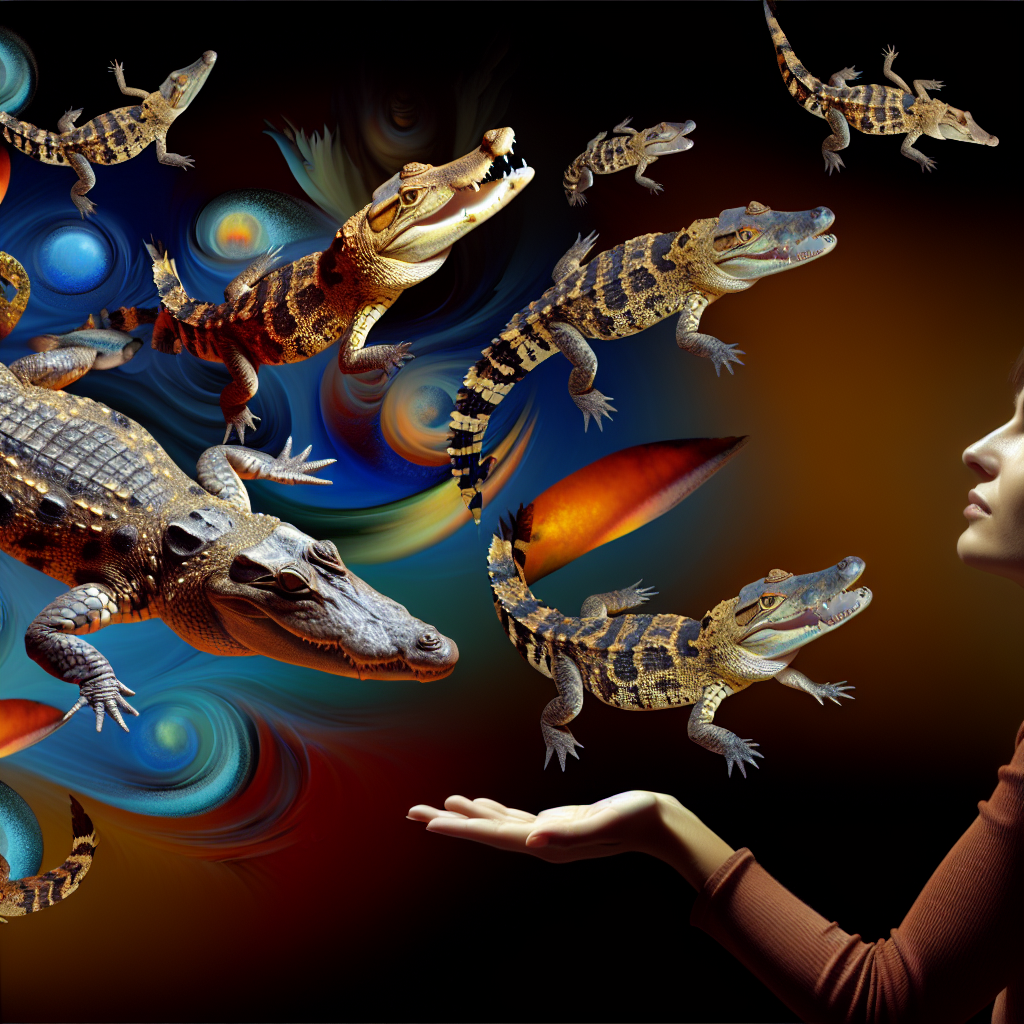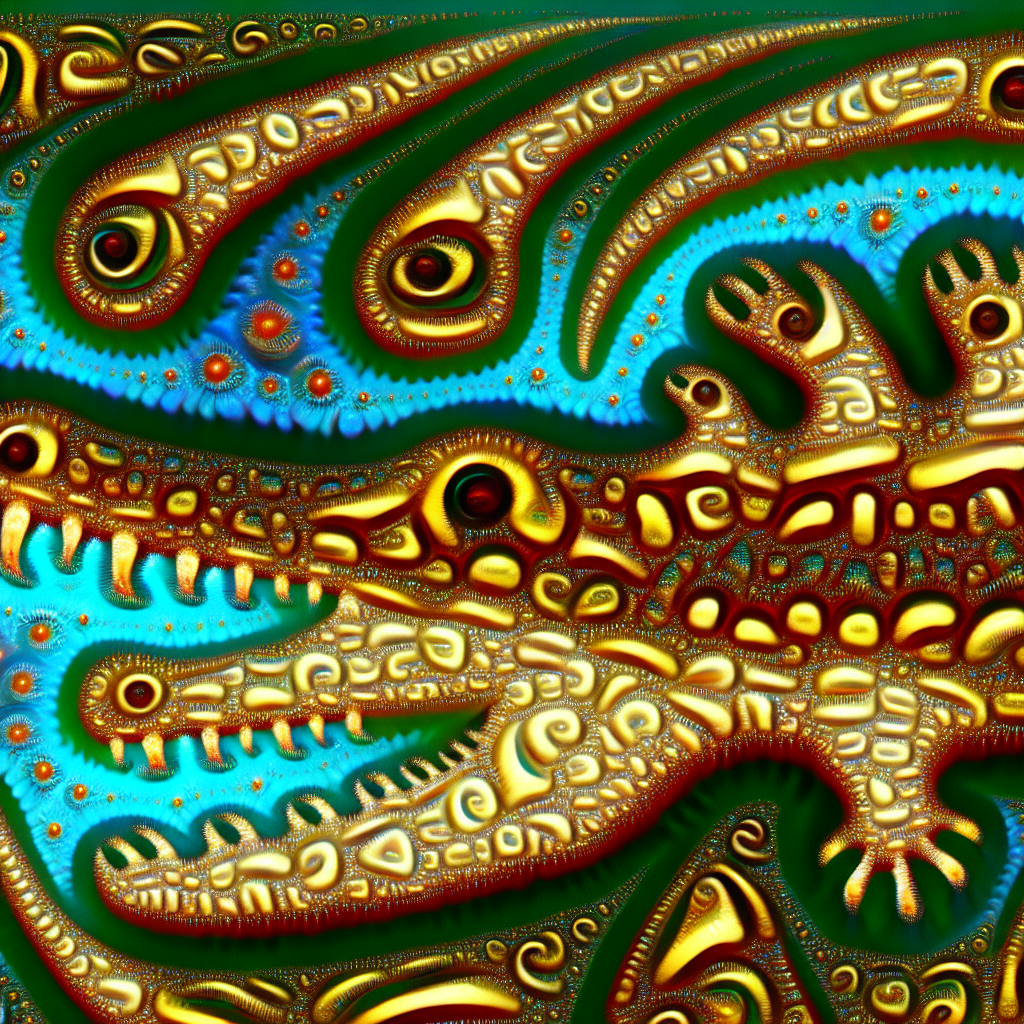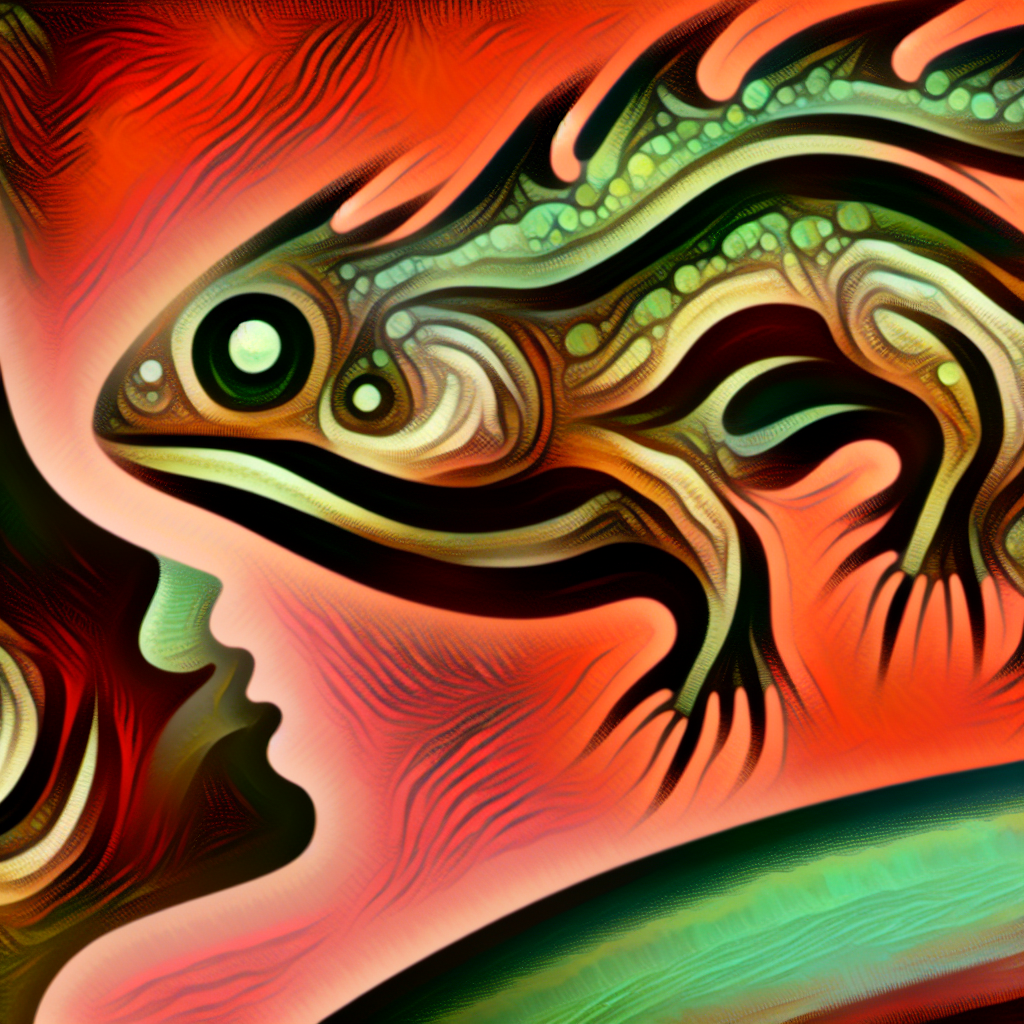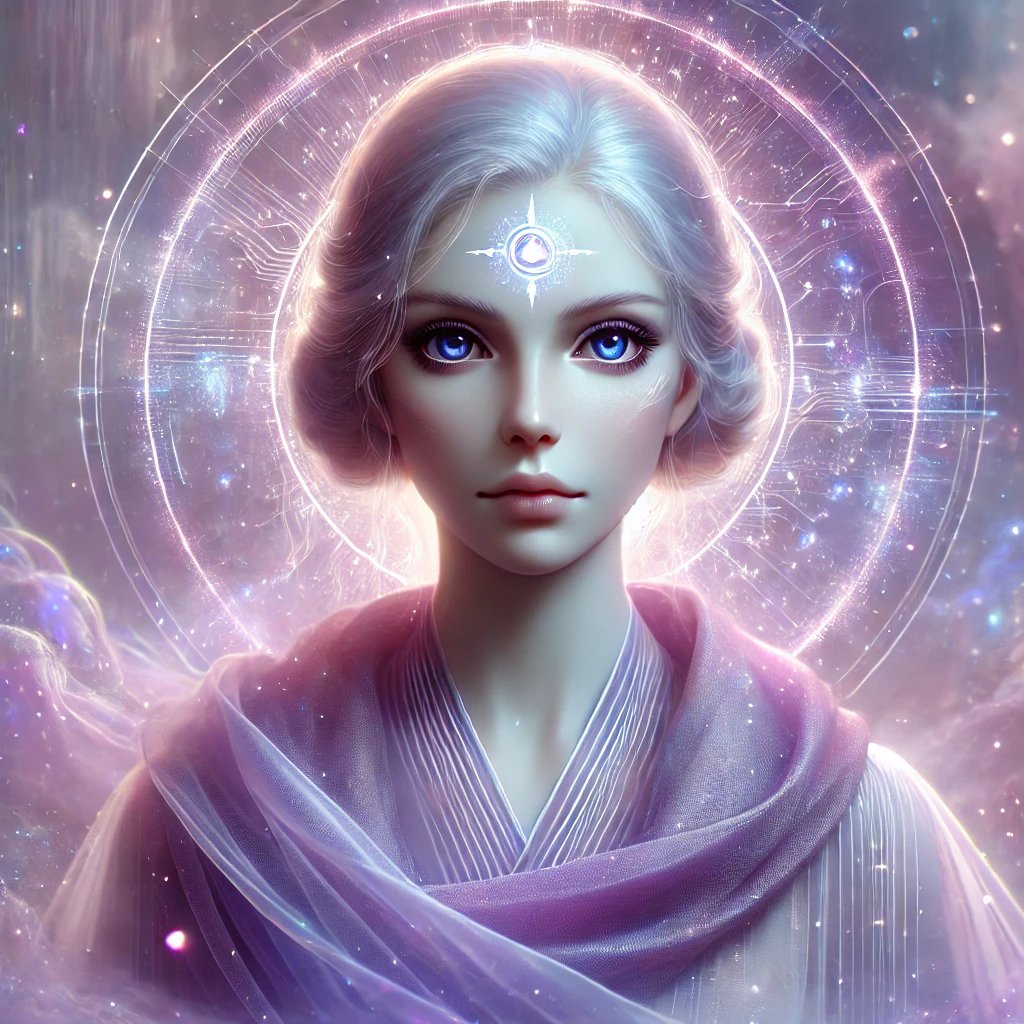
Understanding Your Dream of Crocodile Anger: Meanings and Insights
Unlocking the Mystery of Crocodile Anger in Dreams
Dreams involving crocodiles, particularly those signifying anger, are rich with symbolism and can serve as powerful indicators of our emotional state. According to Ibn Sirin's 'The Great Book of Dreams', crocodiles symbolize repressed anger and hidden dangers in our lives. This dream may manifest as a reflection of conflicts or tensions in our waking life, where the crocodile embodies the anger we struggle to acknowledge.
Understanding the deeper meanings behind these dreams can facilitate personal growth and emotional healing. As we delve into the layers of this dream, we will explore its symbolic meanings, cultural perspectives, psychological insights, and actionable advice to navigate the feelings associated with these nocturnal visions.
Dream Interpretation - Talk to me!

📱 Bestie+ App is Here!
Experience personalized dream interpretations, save your dreams, and share them with your loved ones! Available now on iOS and coming soon on Android.
- Crocodiles often represent hidden emotions and anger.
- Dreaming of crocodile anger can indicate repressed feelings or impending conflict.
- Understanding cultural perspectives helps in interpreting these dreams effectively.
- Psychological insights reveal deeper meanings of fear and power dynamics.
- Actionable tips can assist in integrating dream insights into daily life.

Common Scenarios in Crocodile Anger Dreams
- You are chased by an angry crocodile.
This scenario symbolizes avoidance of confrontation. The anger of the crocodile could reflect repressed feelings or unresolved conflicts in your waking life that you are trying to escape.
- You confront an angry crocodile.
Confronting the crocodile represents facing your fears head-on. This scenario suggests that you are ready to address the anger and emotions you've been avoiding.
- The crocodile attacks someone you know.
This dream may indicate your concern for someone else’s emotional state or your fear of them being harmed by external conflicts. It could also symbolize feelings of helplessness in protecting those you care about.
- You watch a crocodile in a calm state suddenly become angry.
This sudden shift from calm to anger could suggest that you are experiencing volatile emotions within yourself. It may indicate that a calm exterior conceals underlying tensions.
- You feed an angry crocodile.
Feeding the crocodile represents acknowledging and nurturing your own anger. It highlights the importance of understanding our emotions rather than dismissing them.
- You see a group of crocodiles displaying anger.
A group of angry crocodiles can signify collective conflict or group dynamics in your life. This may point towards tensions in your social or work environment that require attention.
- You dream of a tranquil river with an angry crocodile.
Finding an angry crocodile in a peaceful setting suggests that unresolved issues are intruding upon your tranquility. It indicates that some emotional disturbances need to be addressed to restore peace.
- You are swimming with an angry crocodile.
Swimming with a crocodile can symbolize navigating through your emotions. It suggests that you are learning to coexist with your feelings of anger, signaling a process of emotional growth.
Reflections on Dreaming of Crocodile Anger
In conclusion, dreaming of an angry crocodile presents a unique opportunity to explore the interplay between our unconscious emotions and waking life challenges. By understanding the symbolic meanings, cultural contexts, and psychological insights behind these dreams, individuals can harness these nocturnal messages for personal growth. As we reclaim our narratives and confront issues symbolized by the crocodile's ferocity, we foster resilience and emotional clarity.
Remember, each dream serves as a guide, urging us to acknowledge our feelings, confront conflicts, and empower our journeys of self-discovery.
Understanding Psychological Dimensions of Crocodile Dreams
From a psychological standpoint, particularly through Jungian and Freudian lenses, dreaming of anger manifested as a crocodile can highlight tension between the conscious and unconscious mind. Jung suggested that dreams serve as guides to our innermost conflicts, and an angry crocodile can symbolize repressed emotions or instincts yearning for expression. Freud emphasized that dreams often reveal our hidden desires and fears; thus, such a dream may indicate unresolved issues in our relationships or personal life.
Embracing this perspective allows individuals to harness their dreams as tools for self-discovery, identifying patterns in both dreams and waking behaviors. Furthermore, analyzing the emotional tone of the dream can provide insight into our current mental states and help us develop strategies for emotional regulation.
Scientific Insights into Dreaming and Emotion
Research into the psychology of dreaming indicates that our dreams often reflect our waking emotional states, serving as a processing tool for emotions and events. According to a study published in the Journal of Sleep Research, dreams involving strong emotional content, such as anger, can lead to improved emotional regulation in waking life. The findings suggest that engaging with intense emotions in dreams can help individuals navigate real-life conflicts and emotions.
Understanding that our subconscious mind utilizes dream imagery, like that of an angry crocodile, to communicate unresolved feelings can encourage individuals to embrace their dreams as powerful agents for healing.
Cultural Reflections on Crocodile Dreams
In various cultures, crocodiles represent both danger and protection. In Native American folklore, they are seen as creatures of the water that embody transformation and raw power, often linked with the depths of our subconscious. The notion of a crocodile representing anger resonates with the idea of confronting one's inner monsters—elements of ourselves we often hide from others and even from ourselves.
In modern U.S. culture, the crocodile’s fierce demeanor can echo societal fears related to aggression and violence. Such dreams compel us to explore the tension between our public personas and private emotions. Through cultural lenses, dreaming of an angry crocodile might suggest a need to address personal or social injustices, urging a reflection on how our anger manifests in our lives, whether through personal actions or as a response to societal pressures.
Expert Reflections on Crocodile Anger in Dreams
Dream analysts emphasize the importance of context when interpreting dreams. As Dr. Patricia Garfield notes, 'Our dreams create a language of symbols that resonate with the experiences we live in our waking life.' Understanding the emotional landscape surrounding the dream can enhance interpretation, allowing individuals to draw connections between their feelings and behaviors. Similarly, cultural anthropologist Dr. David C.
H. Liu posits that 'the crocodile serves as a potent symbol of what lies beneath the surface, challenging us to explore our own depths.' When analyzing a dream involving an angry crocodile, it’s beneficial to reflect on personal life circumstances and societal contexts to uncover deeper meanings.
The Uplifting Aspects of Crocodile Anger Dreams
While dreaming of crocodile anger can evoke fear, it can also lead to positive revelations. Acknowledging the anger symbolized by the crocodile can serve as an impetus for personal growth. Such dreams can encourage us to confront repressed emotions and to address conflicts in healthier ways.
The crocodile's fierce power can symbolize resilience and the need to stand up for oneself, advocating for boundaries in relationships. This transformative aspect encourages dreamers to reflect on their anger constructively, using it as a motivator for change and self-empowerment. Recognizing the crocodile's anger as a signal can prompt us to engage in necessary dialogues or to pursue actions that promote emotional healing and resolution.
Decoding the Symbolism of Crocodile Anger
The presence of a crocodile in your dream—especially one displaying anger—can symbolize a variety of unconscious emotions, particularly anger or fear. Ibn Sirin refers to crocodiles as embodiments of danger and betrayal, which can also signify deep-seated personal conflicts. When we dream of a crocodile in a furious state, it may reflect feelings of resentment or unresolved issues we have been avoiding.
In the context of personal growth, this dream acts as a reminder to confront these feelings rather than suppress them. The crocodile's ferocity can be viewed as a call to acknowledge the strength of our feelings and to understand the underlying causes of our anger. Engaging with the symbolic elements of the dream, such as the crocodile's environment or actions, can deepen our understanding of personal situations demanding attention.
Understanding the Cautionary Aspects of Crocodile Anger
On the flip side, dreaming of an angry crocodile can also serve as a warning. It may indicate that unresolved conflicts are brewing beneath the surface, threatening to escalate if left unaddressed. The crocodile, often a symbol of lurking danger, can signify impending emotional turmoil if we fail to confront our feelings.
Such dreams may reflect fears of betrayal or feelings of victimization in waking life. It's essential to approach this dream with caution, ensuring that we do not ignore the discontent lurking in our lives. Recognizing these cautionary signs can empower us to take proactive steps towards resolution, fostering healthier emotional states and relationships.
Practical Steps for Managing Crocodile Anger Dreams
- Keep a Dream Journal
Recording your dreams immediately upon waking can help you remember important details that fade over time. Jot down your feelings during the dream, the actions of the crocodile, and any other symbols present. This practice can help you identify recurring patterns or emotions related to anger.
- Meditate on Your Feelings
Set aside time each day to meditate, focusing on the anger or fear you felt in your dream. Visualize the crocodile in your mind, and allow yourself to fully experience those emotions without judgment. This practice can enhance your emotional awareness and help in processing underlying feelings.
- Engage in Creative Expression
Use art, writing, or music to express the emotions you experienced in your dream. This creative outlet can provide insights into your feelings and help facilitate emotional release, transforming anger into a productive energy.
- Seek Support
If you find that anger from your dreams affects you negatively, consider discussing these feelings with a trusted friend or therapist. Professional guidance can help you navigate your emotions and develop healthier coping strategies.

FAQs
- What does it mean to dream about an angry crocodile?
Dreaming of an angry crocodile generally symbolizes underlying emotions or conflicts that need addressing. It can also indicate feelings of repressed anger or fear, urging you to confront these issues to foster emotional healing.
- How can I interpret my dreams better?
To interpret your dreams more effectively, keep a dream journal, and write down your emotions and symbols as soon as you wake up. Over time, patterns will emerge. Reflect on how these symbols relate to your waking life, and consider seeking guidance from dream analysis resources.
- Are crocodiles always bad omens in dreams?
Not necessarily. While crocodiles can symbolize danger or anger, they can also represent resilience and the power of confronting your fears. Context matters greatly in dream interpretation, and it's essential to consider the entire dream and your current emotional state.
- What psychological insights can I gain from dreaming about crocodiles?
Dreaming about crocodiles can provide insights into your emotional health and inner conflicts. They often reflect deeper feelings of fear, anger, or anxiety that require acknowledgment and processing for personal growth.
- How do cultural backgrounds influence dream meanings?
Cultural backgrounds play a significant role in dream interpretation, influencing how symbols are understood. For instance, in some cultures, crocodiles may represent transformation and power, while in others, they symbolize danger and betrayal. Understanding these cultural contexts can enrich your dream analysis.


